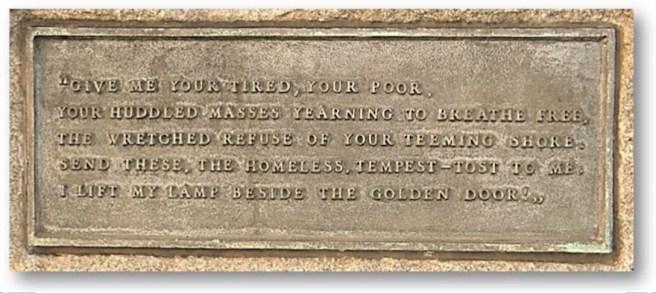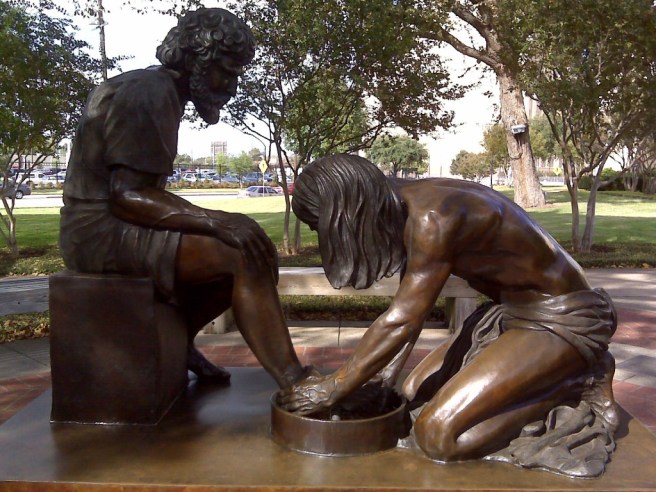
Something struck me the other day as I read the familiar story of Martha and Mary. It’s one of those stories I tend to scan past because, well, I’ve read it a million times! This time, though, I suddenly felt like I might be missing something important.
I stopped, backed up, and read the passage again, silently sending up what I think of as “question-mark prayers” (?…?…?) asking for insight. What was I missing?
As Jesus and his disciples were on their way, he came to a village where a woman named Martha opened her home to him. She had a sister called Mary, who sat at the Lord’s feet listening to what he said. But Martha was distracted by all the preparations that had to be made. She came to him and asked, “Lord, don’t you care that my sister has left me to do the work by myself? Tell her to help me!”
“Martha, Martha,” the Lord answered, “you are worried and upset about many things, but few things are needed—or indeed only one. Mary has chosen what is better, and it will not be taken away from her.” (Luke 10:38-42)
This time I saw it. Martha’s accusatory question of Jesus (“Lord, don’t you care…?“) echoed what Jesus’ disciples had said to him in a different setting:
That day when evening came, [Jesus] said to his disciples, “Let us go over to the other side.” Leaving the crowd behind, they took him along, just as he was, in the boat. There were also other boats with him. A furious squall came up, and the waves broke over the boat, so that it was nearly swamped. Jesus was in the stern, sleeping on a cushion. The disciples woke him and said to him, “Teacher, don’t you care if we drown?”
He got up, rebuked the wind and said to the waves, “Quiet! Be still!” Then the wind died down and it was completely calm. He said to his disciples, “Why are you so afraid? Do you still have no faith?” (Mark 4:35-40)
In both cases Jesus’ response to being asked, “Don’t you care?” was a bit unexpected. Instead of reassuring Martha and the disciples of his love and concern for them, he rebuked them! His response in the storm sounds almost astonished: “Why are you so afraid?” It was inconceivable to him that he, who was Love, could be seen as somehow uncaring.
He would soon stand silent, seemingly indifferent as Pilate, the chief priests and elders accused him of subversion and other capital crimes… but being charged with “not caring”? It stung his heart.
There’s another Bible story that stands in sharp contrast to the two stories above. It’s a less familiar and far less comfortable story, but it holds an important key for those of us who wrestle with how not to question God’s love during times of trial and suffering.
It’s the story of the Canaanite woman.
Leaving that place, Jesus withdrew to the region of Tyre and Sidon. A Canaanite woman from that vicinity came to him, crying out, “Lord, Son of David, have mercy on me! My daughter is demon-possessed and suffering terribly.”
Jesus did not answer a word. So his disciples came to him and urged him, “Send her away, for she keeps crying out after us.”
He answered, “I was sent only to the lost sheep of Israel.”
The woman came and knelt before him. “Lord, help me!” she said.
He replied, “It is not right to take the children’s bread and toss it to the dogs.”
“Yes it is, Lord,” she said. “Even the dogs eat the crumbs that fall from their master’s table.”
Then Jesus said to her, “Woman, you have great faith! Your request is granted.” And her daughter was healed at that moment. (Mt 15:21-28)
Wow. I wouldn’t have handled this well.
When Jesus ignored my repeated cries and kept walking, not even acknowledging that he heard me, I would have said, “Lord, don’t you care?”
When he finally responded but just to say, “Not my problem”, I would have said (louder), “Lord, don’t you care?”
When he compared me–as I’m on my knees begging–to a pet dog begging at the family table, I would have screamed in shock and outrage, “LORD, DON’T YOU CARE?”
I would have been offended, deeply offended. But Jesus drew a line in the sand when he said, “Blessed is anyone who takes no offense at me.” (Mt 11:6)
Offense? Not an option.
I have found, over my 60 years, that my Beloved often works his greatest miracles in my life through offense. It is always my choice to either get offended and withdraw (angry, hurt, rejected) or to show “great faith” like the Canaanite woman by fearlessly pursuing him, trusting that he cares even when it doesn’t look like it. Sometimes I get it right and sometimes I fail miserably, but this I know: it is his love that presses us beyond ourselves to put new levels of faith, holiness and peace within our grasp.
© 2016 Deborah Morris


